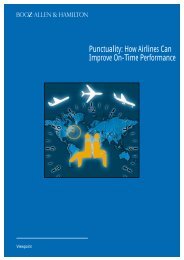The sentence
The sentence
The sentence
You also want an ePaper? Increase the reach of your titles
YUMPU automatically turns print PDFs into web optimized ePapers that Google loves.
‘None of’ and ‘neither of’<br />
<strong>The</strong> negative of All the girls left early. is: None of the girls left early.<br />
<strong>The</strong> negative of Both the girls left early. is: Neither of the girls left early.<br />
F. ‘All (the)’, ‘(a/the) whole’, ‘each’ and ‘every’<br />
“All (the)’ compared with ‘(a/the) whole’<br />
1. We use the whole and a whole with singular countable nouns:<br />
He ate the whole loaf. He swallowed a whole banana . <strong>The</strong> whole film was boring.<br />
We do not use the whole with plurals or uncountables. (Not *the whole books/bread*)<br />
2. Some nouns combine only with all:<br />
He spent all the money. She’s 90 and she’s still got all her teeth.<br />
Some nouns combine only with whole:<br />
You must tell me the whole truth. I’d like to know the whole history of the world.<br />
Some nouns combine with all of whole:<br />
I’ve waited all my life/my whole life for such a moment as this.<br />
3. we also use all and a/the whole with time references: all day, a/the whole night.<br />
Whole is stronger than all and also combines with words like hour and century:<br />
a/the whole hour, a/the whole century. (Not *all the hour* *all the century*)<br />
‘All’ compare with ‘everyone/everybody’ and ‘everything’<br />
1. We rarely use all on its own to mean ‘everyone/everybody’:<br />
Everyone/Everybody wanted Marilyn’s autograph. (Not *All wanted*)<br />
2. All means ‘everyone/everybody’ when we use other words with it:<br />
All of us/We all agreed to sign the contract. All those who were present were in<br />
favour.<br />
(= Everyone/Everybody agreed to sign. Everyone/Everybody present was in favour.)<br />
3. We often use all and everything with other words to refer to things:<br />
All/Everything I have belongs it you. he taught me all/everything I know.<br />
But note: He gave me everything. (Not *He gave me all.*)<br />
‘Each’ and ‘every’<br />
1. We often each, like both, to refer to two people or things:<br />
My wife and I each ordered avocado to start with. We cannot use every here.<br />
2. We can use each and every to refer to more than two.<br />
Each suggests ‘one by one’, ‘separately’, every suggests ‘all together’:<br />
Each child at the party had a piece of cake. (Every is also possible.)<br />
Every child in the world loves the story of Cinderella. (Each is unlikely.)<br />
3. We must use every (Not *each*) after nearly and after not:<br />
Nearly every shop is shut today. Not every train driver is on strike today.<br />
4. We cannot use of after every and we cannot use every at the end of a <strong>sentence</strong>:<br />
Each of the children received a present. <strong>The</strong>y received a present each.<br />
33




